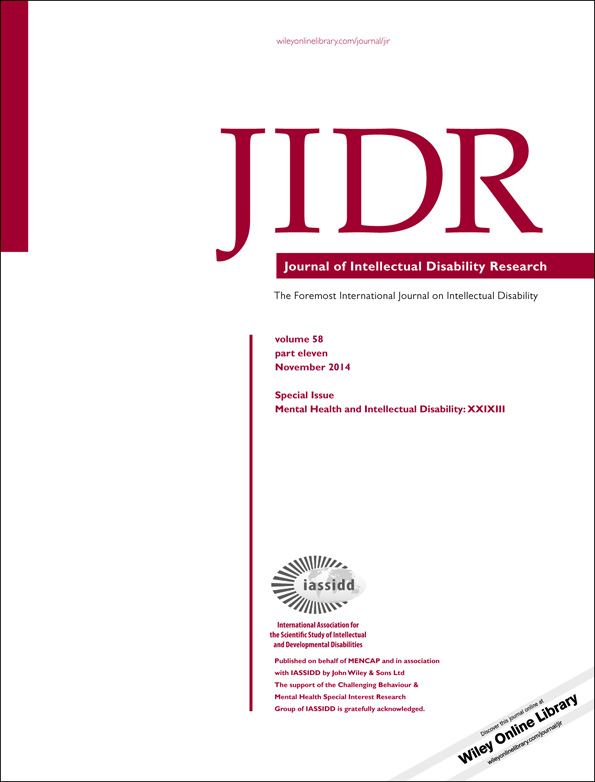The analysis of challenging relations: influences on interactive behaviour of staff towards clients with intellectual disabilities
Abstract
Background
Relationships between support staff and clients with intellectual disability (ID) are important for quality of care, especially when dealing with challenging behaviour. Building upon an interpersonal model, this study investigates the influence of client challenging behaviour, staff attitude and staff emotional intelligence on interactive behaviour of one of these relationship partners, being support staff.
Method
A total of 158 support staff members completed a questionnaire on staff interactive behaviour for 158 clients with ID and challenging behaviour, as well as two questionnaires on staff interpersonal attitude and emotional intelligence.
Results
Confronted with challenging behaviour as opposed to no challenging behaviour, staff reported less friendly, more assertive control and less support-seeking interpersonal behaviour. Also, staff used more proactive thinking and more self-reflection in dealing with challenging behaviour. Staff interpersonal attitude in general, mainly a harsh-dominant-resentful attitude, had a significant influence on most staff interactive behaviours towards an individual client with challenging behaviour. The influence of staff emotional intelligence, specifically intrapersonal abilities, on staff interactive behaviour towards an individual client with challenging behaviour was somewhat limited.
Conclusions
This research supports the necessity for training staff in general interpersonal attitudes towards clients as well as training in intrapersonal emotional intelligence, when confronted with challenging behaviour. Future research should focus more on the bidirectional dynamics of staff and client interactions.




